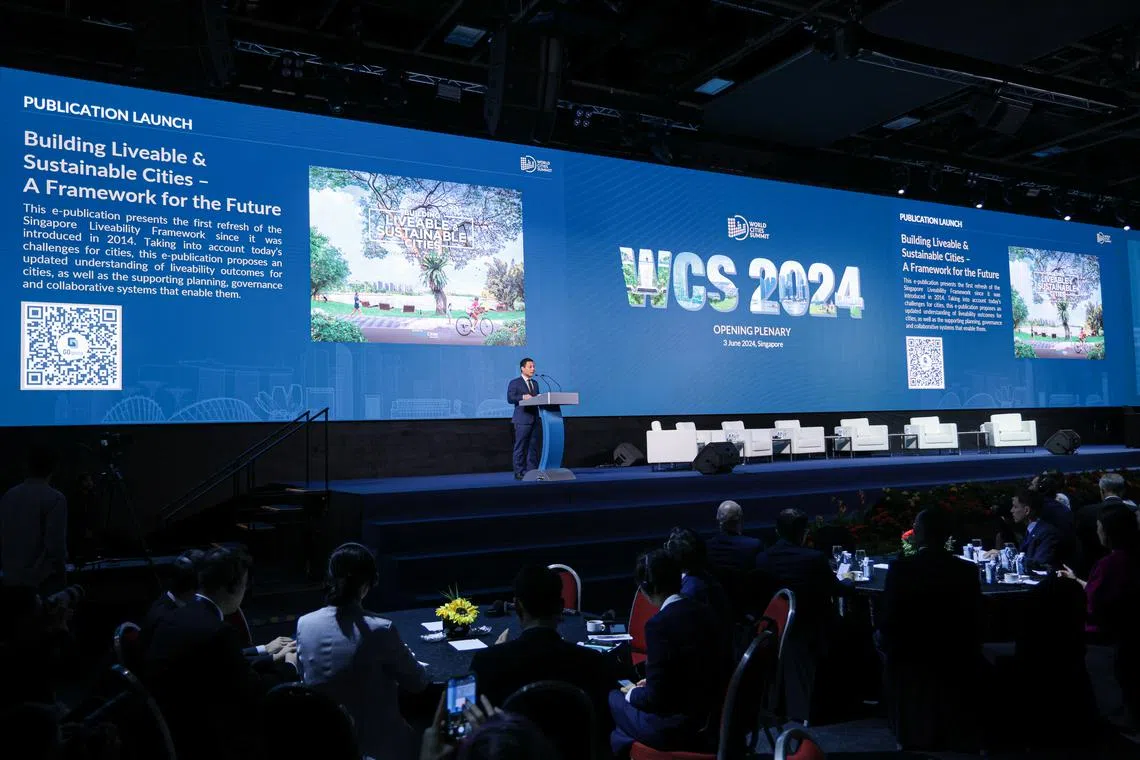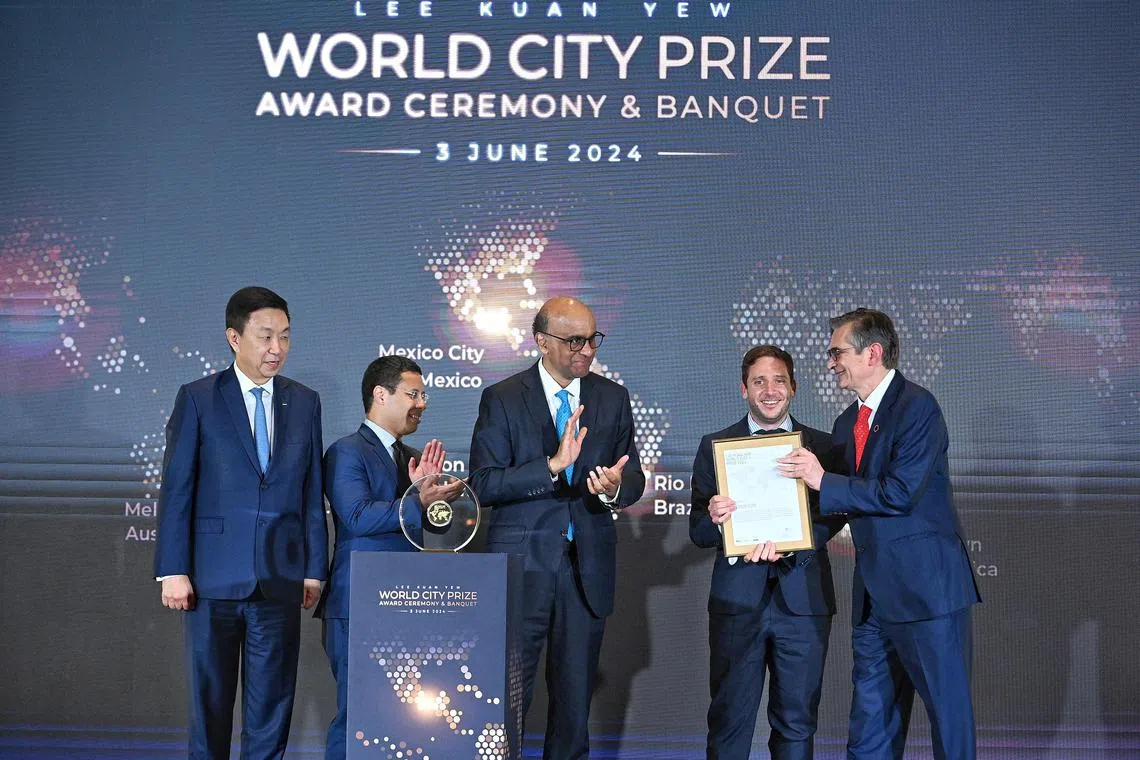Winners of Lee Kuan Yew World City Prize to collaborate on urban projects, tackle issues
Sign up now: Get ST's newsletters delivered to your inbox

National Development Minister Desmond Lee said the City Network for the Lee Kuan Yew World City Prize will foster partnerships across cities.
PHOTO: LIANHE ZAOBAO
Follow topic:
SINGAPORE – A network has been launched in Singapore to bring government officials and academics together to collaborate on projects and discuss urban challenges.
The City Network for the Lee Kuan Yew World City Prize will foster partnerships across cities, and allow them to share knowledge and build up their capabilities, said National Development Minister Desmond Lee at the World Cities Summit 2024 on June 3.
The network, set up by the Centre for Liveable Cities (CLC) and the Urban Redevelopment Authority (URA), currently comprises the seven winners of the Lee Kuan Yew World City Prize such as Bilbao in Spain, Suzhou in China, Vienna in Austria and Mexico City, as well as organisations from those cities.
The biennial award recognises outstanding contributions towards the creation of vibrant, liveable and sustainable urban communities. CLC and URA also invited 20 cities that received special mentions under the award to join the network.
Cities in the network will identify solutions to urban challenges, and collaborate on research projects and joint publications, said the organisations.
The outcomes of such projects will be shared at future World Cities Summits.
Speaking at the summit, held at Suntec Singapore Convention and Exhibition Centre, Mr Lee said Singapore will work with member cities on projects that could include research on sustainable urban rejuvenation and a publication on approaches to quality and affordable housing.
“We hope such initiatives will not only enable cities to tackle current and future urban challenges, but also build strong inter-city relationships across different levels – governors, mayors, city halls, planning departments and knowledge organisations,” he said.
In a forum at the summit on June 3, representatives from the seven award-winning cities discussed urban challenges they hope the network will tackle.
Mr Tom Wright, president of the Regional Plan Association in New York City – which won the prize in 2012 – said he hopes to address the tight housing supply in the city as housing production had “dropped dramatically” during the economic recession from 2007 to 2009, and has yet to recover.
He said the vacancy rate of rental housing in New York, which was already a “very tight market”, has declined to about 1.5 per cent in 2024, down from about 4.5 per cent in 2022.
“We are short by about half a million units today and, by 2035, there will be a million units if we don’t dramatically change direction,” he said.
“My plea to this group is to help us sort this out because we are failing in New York and we need help.”
Mr Johannes Lutter, head of Urban Development and Mobility at Urban Innovation Vienna, said that vulnerable groups such as women and the elderly have to be taken care of amid the climate and social crises.
“This is not only a question of infrastructure, but also a question of community work, and we are eager to learn from how you are doing it in your society,” he added.
Vienna, the capital of Austria, won the award in 2020.
In a separate session, representatives from 10 cities, including award winners and those that received special mentions, shared their urban initiatives after being recognised by the Lee Kuan Yew World City Prize.
For instance, the Indian city of Ahmedabad completed the first phase of a waterfront development – comprising parks, markets and sports complexes – along the Sabarmati River in 2015. The city received a special mention in 2012.
Mr Dev Choudhary, Ahmedabad Municipal Corporation’s deputy municipal commissioner, said a challenge was relocating the 1,000 families who lived along the waterfront. They were eventually allowed to continue their livelihoods along the river, and were provided affordable housing in developed parts of the city.
Yokohama, which received a special mention in 2014, set a goal in 2019 to reach net-zero carbon emissions by 2050 in an effort to tackle climate change.
Mr Kubota Atsushi, executive director of the Global Networks Department in Yokohama’s International Affairs Bureau, said that to reach this goal, it aims to fully decarbonise its Central Business District by 2030.
One way is to set up its own district heating and cooling system using solar and wind power as sources of electricity, he added.
President Tharman Shanmugaratnam presented the Lee Kuan Yew World City Prize 2024 to Mr Eduardo Clark, head of the Digital Agency for Public Innovation in Mexico City, at a dinner banquet held in Clifford Pier on June 3.

President Tharman Shanmugaratnam (centre) presented the Lee Kuan Yew World City Prize 2024 to Mr Eduardo Clark (second from right), head of the Digital Agency for Public Innovation in Mexico City.
ST PHOTO: DESMOND WEE
Mexico City was recognised
It implemented a range of inclusive social policies and programmes, such as free education for children and youth, and encouraged dignified ageing for the elderly as a way of building stronger and more resilient communities, among other efforts.

